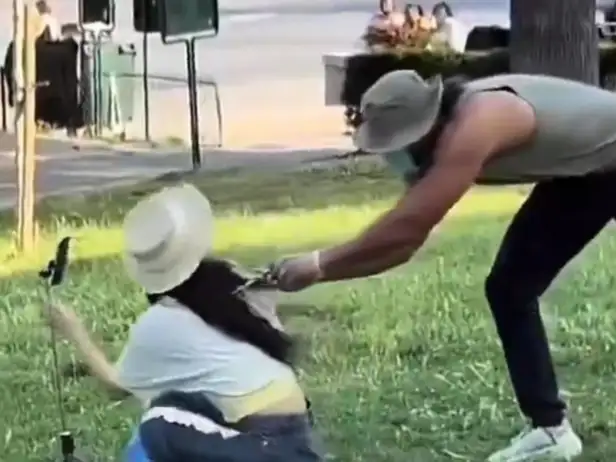A French TikTok prankster who filmed himself pretending to inject strangers on the streets of Paris has been sentenced to prison, after his viral stunt triggered widespread panic in a country already gripped by fear over real needle attacks.
Ilan M., known online as ‘Amine Mojito’, posted a viral video days before France’s Fête de la Musique in June, in which he crept up on members of the public and mimed syringe jabs using an empty, capped needle.
Captioned ‘Mojito le piqueur fou’ (‘the mad stinger’), the clip quickly triggered outrage amid reports of similar real-life incidents across France.
The prank came at a time when the public was on high alert. French police had already received 145 reports of needle attacks during music festivals and student parties in June alone.
Although few cases were confirmed, public anxiety was fuelled by these accounts, many of which involved young women claiming to have been jabbed at random in crowded events.
Viral Prank Amid National Panic

The timing of Mojito’s video caused particular concern among authorities. Prosecutors argued that his content not only exploited an ongoing health scare but risked encouraging further incidents by portraying syringe attacks as a form of entertainment.
His actions were described in court as having ‘knowingly aggravated public outrage in an otherwise volatile context’.
While the syringe used in the video was capped and contained no substance, the prank drew immediate comparisons to real assaults then being investigated across the country.
The court ruled that Mojito’s actions constituted ‘violence with a weapon that did not result in incapacity for work’.
The 27-year-old was sentenced to 12 months in prison, six of which will be served in custody. He was also fined €1,500 (approximately £1,450) and banned from owning or carrying a weapon for three years.
A Prank Gone Wrong

In court, Mojito expressed regret, claiming he had been ‘in his own world’ and unaware of the possible consequences. He admitted to copying prank trends seen in Spain and Portugal, stating that he ‘didn’t think it could hurt people’, as reported by Libération.
His defence team said he had hoped to revive his social media career and promote a fitness programme, not cause public fear.
His defence lawyer, Marie Claret de Fleurieu, argued that the sentencing was fair and helped refocus attention on balancing public order with the protection of her client’s rights.
She also emphasised that Mojito had already spent nearly two months in pre-trial detention, mostly in solitary confinement for his own protection.
Public reaction to the sentence has been mixed, with many social media users expressing anger over what they perceive as a lenient punishment. Some noted the psychological distress caused to those targeted, particularly in light of widespread anxiety over real needle-spiking incidents.
While the influencer’s intention may have been to generate viral content, the backlash has served as a stark reminder of the potential real-world harm caused by irresponsible online behaviour.
Public concern has remained high in the wake of ongoing investigations.
Real Incidents Fuelled Prank Reaction

In the weeks leading up to Mojito’s video, police across France were already dealing with a wave of needle-spiking reports. During the Fête de la Musique in June, roughly 145 teenagers and adults alike reported being jabbed by strangers.
French police have detained 12 suspects in connection with the incidents. Though toxicology results were largely inconclusive, some victims experienced illness and were taken to hospital.
The Mojito case, though involving no actual substance, highlighted how quickly misinformation and social media content can inflame public fear.
Prosecutors initially requested a 15-month sentence under electronic monitoring, but the court opted for a custodial term instead.
READ ALSO: Private Sector Pension Contributors Hit 1.06 Million, But Job Openings Take a 15.7% Dive























